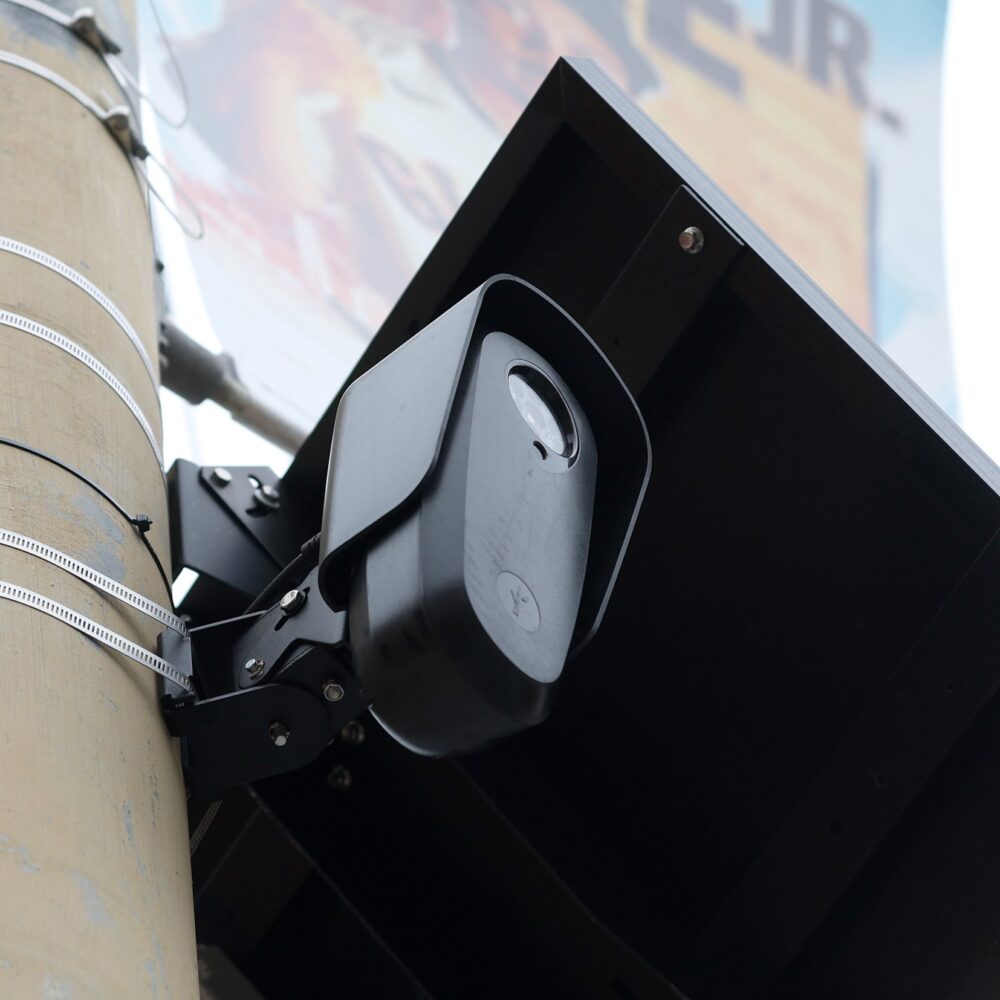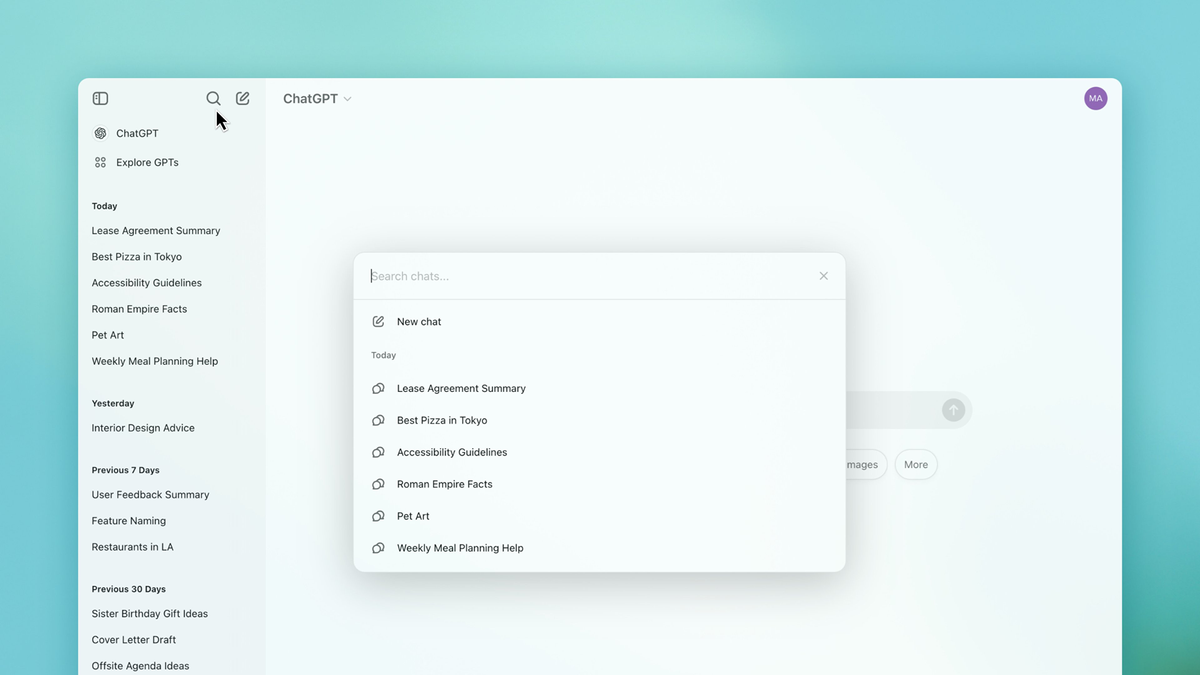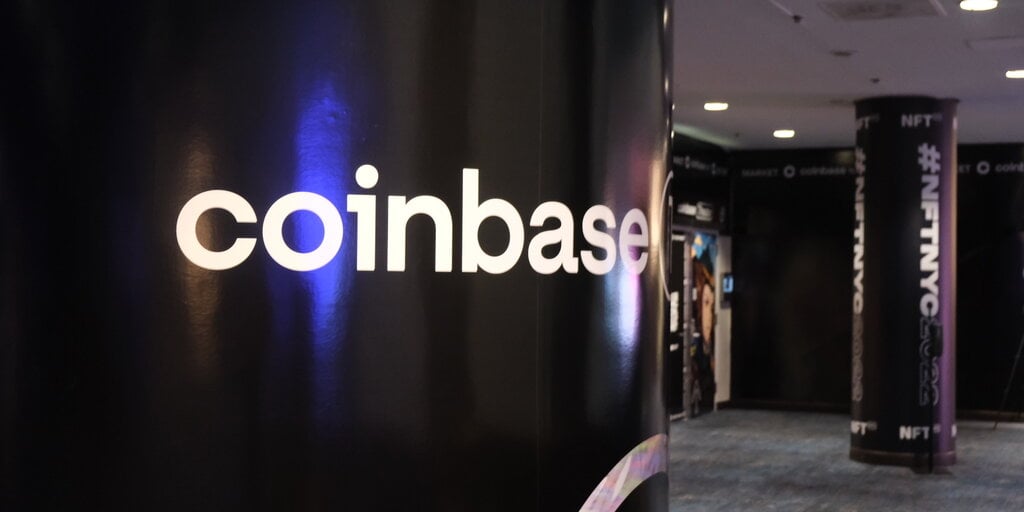"Every passing car is captured," says 4th Amendment lawsuit against Norfolk, Va.

An automated license plate reader is seen mounted on a pole on June 13, 2024 in San Francisco, California.
Police use of automated license-plate reader cameras is being challenged in a lawsuit alleging that the cameras enable warrantless surveillance in violation of the Fourth Amendment. The city of Norfolk, Virginia, was sued yesterday by plaintiffs represented by the Institute for Justice, a nonprofit public-interest law firm.
Norfolk, a city with about 238,000 residents, "has installed a network of cameras that make it functionally impossible for people to drive anywhere without having their movements tracked, photographed, and stored in an AI-assisted database that enables the warrantless surveillance of their every move. This civil rights lawsuit seeks to end this dragnet surveillance program," said the complaint filed in US District Court for the Eastern District of Virginia.
Like many other cities, Norfolk uses cameras made by the company Flock Safety. A 404 Media article said Institute for Justice lawyer Robert Frommer "told 404 Media that the lawsuit could have easily been filed in any of the more than 5,000 communities where Flock is active, but that Norfolk made sense because the Fourth Circuit of Appeals—which Norfolk is part of—recently held that persistent, warrantless drone surveillance in Baltimore is unconstitutional under the Fourth Amendment in a case called Beautiful Struggle v Baltimore Police Department."
The Norfolk lawsuit seeks a declaration "that Defendants' policies and customs described in this Complaint are unlawful and violate the Fourth Amendment," and a permanent injunction prohibiting the city from operating the Flock cameras. They also want an order requiring the city "to delete all images, records, and other data generated by the Flock Cameras."
If the use of Flock cameras does continue, the lawsuit aims to require that officers obtain a warrant based on probable cause before using the cameras to collect images and before accessing any images.
Flock: Case law supports license plate readers
Flock Safety is not a defendant in the case, but the company disputed the legal claims in a statement provided to Ars today. "Fourth Amendment case law overwhelmingly shows that license plate readers do not constitute a warrantless search because they take photos of cars in public and cannot continuously track the movements of any individual," Flock Safety said.
The warrantless drone surveillance case cited in the lawsuit was decided in November 2020 by the US Court of Appeals for the 4th Circuit. The appeals court "struck down an aerial surveillance program precisely because it created record of where everyone in the city of Baltimore had gone over the past 45 days," the lawsuit against Norfolk said. "Norfolk is trying to accomplish from the ground what the Fourth Circuit has already held a city could not do from the air."
The plaintiffs are Norfolk resident Lee Schmidt and Portsmouth resident Crystal Arrington, who both frequently drive through areas monitored by the cameras. They sued the city, the Norfolk police department, and Police Chief Mark Talbot.
The city contracted with Flock Safety "to blanket Norfolk with 172 advanced automatic license plate reader cameras... Every passing car is captured, and its license plate and other features are analyzed using proprietary machine learning programs, like Flock's 'Vehicle Fingerprint.'"
The lawsuit said that "Flock also offers its customers the ability to pool their data into a centralized database," giving police departments access to over 1 billion license plate reads in 5,000 communities every month. "Flock thus gives police departments the ability to track drivers not just within their own jurisdiction, but potentially across the entire nation," the lawsuit said.
“Crystal finds all of this deeply intrusive”
Schmidt, a 42-year-old who recently retired from the Navy after 21 years, passes Flock cameras when he leaves his neighborhood and at many other points in town, the lawsuit said. Police officers can "follow Lee's movements throughout the City, and even throughout other jurisdictions that let Flock pool their data," the lawsuit said.
Arrington, a certified nursing assistant with many elderly clients in Norfolk, "makes frequent trips to Norfolk to take her clients to doctors' offices and other appointments," the lawsuit said. Flock cameras may capture images of her car in Norfolk and when she returns home to Portsmouth, which is also a Flock customer.
"Crystal finds all of this deeply intrusive... Crystal worries about how the Flock Cameras are eroding not just her privacy, but her clients' privacy, too," the complaint said.
In a press release, the Institute for Justice claimed that "Norfolk has created a dragnet that allows the government to monitor everyone's day-to-day movements without a warrant or probable cause. This type of mass surveillance is a blatant violation of the Fourth Amendment."
The group says that Flock's cameras aren't like "traditional traffic cameras... [which] capture an image only when they sense speeding or someone running a red light." Instead, Flock's system captures images of every car and retains the images for at least 30 days, the group said.
"It's no surprise that surveillance systems like Norfolk's have been repeatedly abused," the group said. "In Kansas, officials were caught using Flock to stalk their exes, including one police chief who used Flock 228 times over four months to track his ex-girlfriend and her new boyfriend's vehicles. In California, several police departments violated California law by sharing data from their license plate reader database with other departments across the country."
Flock’s Vehicle Fingerprint tech
Flock's Vehicle Fingerprint technology "includes the color and make of the car and any distinctive features, like a bumper sticker or roof rack" and makes those details searchable in the database, the lawsuit said. The complaint describes how officers can use the Flock technology:
All of that surveillance creates a detailed record of where every driver in Norfolk has gone. Anyone with access to the database can go back in time and see where a car was on any given day. And they can track its movements across at least the past 30 days, creating a detailed map of the driver's movements. Indeed, the City's police chief has boasted that "it would be difficult to drive anywhere of any distance without running into a camera somewhere." In Norfolk, no one can escape the government's 172 unblinking eyes. And the City's dragnet is only expanding: On September 24, 2024, the Chief of Police announced plans to acquire 65 more cameras in the future.
The cameras make this surveillance not just possible, but easy. Flock provides advanced search and artificial intelligence functions. The sort of tracking that would have taken days of effort, multiple officers, and significant resources just a decade ago now takes just a few mouse clicks. City officers can output a list of locations a car has been seen, create lists of cars that visited specific locations, and even track cars that are often seen together.
In its statement today, Flock said that "appellate and federal district courts in at least fourteen states have upheld the use of evidence from license plate readers as constitutional without requiring a warrant, as well as the 9th and 11th circuits."
Flock cited several Virginia rulings, including one earlier this month in which a federal judge wrote, "There is simply no expectation of privacy in the exterior of one's vehicle, or while driving it on public thoroughfares." The ruling denied a motion to suppress evidence derived from the Flock camera system.
"License plates are issued by the government for the express purpose of identifying vehicles in public places for safety reasons," Flock said in its statement to Ars. "Courts have consistently found that there is no reasonable expectation of privacy in a license plate on a vehicle on a public road, and photographing one is not a Fourth Amendment search."
Lawsuit: “No meaningful restrictions” on camera use
The lawsuit against Norfolk alleges that the city's use of Flock cameras "violates a subjective expectation of privacy that society recognizes as reasonable."
The plaintiffs have a reasonable expectation that "neither an ordinary person nor the NPD could create a long-term record of their movements throughout the City and other Flock jurisdictions," the lawsuit said. "They do not expect, for instance, that a group of people or even officers would post themselves at various points throughout the City—day and night—to catalogue every time they and everyone else drove past. Nor do they expect that the police or anyone else would have the capability to reconstruct their movements over the past 30 days or more."
The lawsuit alleges that there are "no meaningful restrictions on City officers' access to this information. Officers need only watch Flock's orientation video and create login credentials to get access," and the officers "can search the database whenever they want for whatever they want" with "no need to seek advance approval."
"All of this is done without a warrant. No officer ever has to establish probable cause, swear to the facts in a warrant application, and await the approval of a neutral judge," the lawsuit said.
City: Cameras “enhance citizen safety”
The lawsuit said that while photos and vehicle details are saved for 30 days by default, officers can keep the photos and information longer if they download them during the 30-day window.
"Worse still, Flock maintains a centralized database with over one billion license plate reads every month," the complaint said. "So, even after a driver leaves the City, officers can potentially keep following them in the more than 5,000 communities where Flock currently has cameras. Likewise, any person with access to Flock's centralized database can access the City's information, potentially without the City even knowing about it. Ominously, the City's police chief has said this 'creates a nice curtain of technology' for the City and surrounding area."
We contacted the city of Norfolk's communications department and the police department today. A police spokesperson said all questions about the lawsuit must be sent to the city communications department. The city declined comment on the lawsuit but defended the use of Flock cameras.
"While the City of Norfolk cannot comment on pending litigation, the City's intent in implementing the use of Flock cameras (which are automatic license plate readers) is to enhance citizen safety while also protecting citizen privacy," a Norfolk city spokesperson said.





:quality(85):upscale()/2023/09/21/802/n/1922729/d9a11ce9650c8850437280.00070284_.jpg)


:quality(85):upscale()/2024/10/30/711/n/1922441/c62313206722590ade53c4.47456265_.jpg)

 English (US) ·
English (US) ·